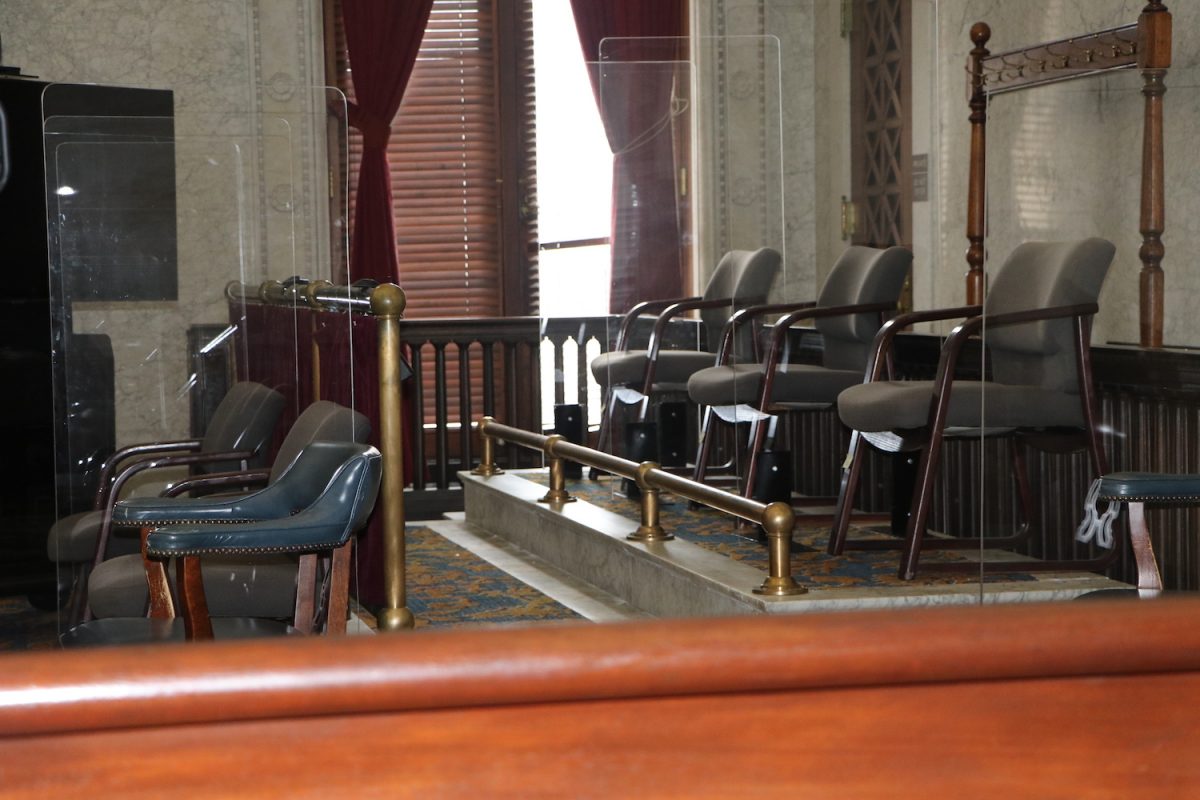
Thank you for reading Baltimore Witness.
Consider making a donation to help us continue our mission.
By
Andrew Michaels
- August 17, 2022
Court
|
Daily Stories
|
Homicides
|
Suspects
|
Victims
|
A 26-year-old Baltimore woman was acquitted of murder this week after she was accused of killing her mother and intentionally setting their home ablaze.
Eshyna Lachelle Young was 22 years old when she was arrested for the death of her mother, 50-year-old Tinesstta Young, that occurred on March 6, 2019. The defendant’s bench trial before Baltimore City Circuit Court Judge John Nugent concluded with her acquittal of second-degree murder, arson, and malicious destruction of property on Aug. 15.
Baltimore City Fire and Police departments were called shortly after 12:30 a.m. for a two-story house fire on S. Morley Street, court documents state. Eshyna, who reported the fire, was found at the scene where her mother was pronounced dead, having sustained severe burns to her back as well as the back of her right leg and head.
Eshyna told police that she saw her mother, who she said was a heavy smoker who often did so in bed, standing in the doorway of her bedroom with flames enveloping her clothes.
An empty pack of matches and cigarette butts were later found among the debris.
Following Eshyna’s trial, a fire investigator, who testified during the proceedings last week, provided Baltimore Witness with his report detailing his investigation, including additional information provided by the Baltimore City Fire Department, the Office of the Chief Medical Examiner, and Allstate insurance.
Eshyna’s defense attorney, Julie Shapiro, requested the investigator to report his findings.
According to the report, the initial investigation by the fire department found that the fire was caused by the “careless use of cigarettes.” However, the medical examiner later informed the fire department that Tinesstta’s injuries showed signs that she died before the fire, leading the fire department to change the cause from an accident to incendiary.
The doctor reported that the victim, who was found laying on her back, had a “lack of burns” on her back, conflicting with the defendant’s statements that her mother was standing in her doorway. Photographic evidence disputed this theory as Tinesstta’s body was shown with severe burns covering her back.
“It is common for survivors of fires to be charged with setting them if they can be shown to be dishonest about their observations and because the fire investigators accepted [the medical examiner’s] opinion without question, they believed that the defendant was being dishonest,” the report states.
The fire investigator concluded that the Baltimore Fire Department “correctly assessed the evidence” from the beginning.
